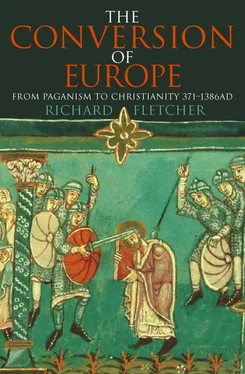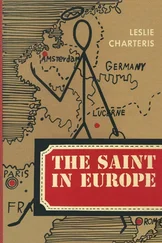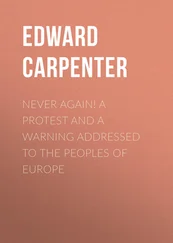The wrestling is necessary because Patrick’s writings are exceedingly difficult to interpret. This is partly because the texts might have been garbled in transmission, but above all it is owing to the language in which they are written. Patrick wrote in Latin, but of a very peculiar kind; indeed, his Latin is unique in the whole vast corpus of ancient or early Christian Latin literature. He had received little formal education – it was to cause him shame all his life – and he did not handle the Latin language with any facility. He longs, passionately longs, to make himself clear to his readers but has the utmost difficulty in so doing. His Latin is simple, awkward, laborious, sometimes ambiguous, occasionally unintelligible. It follows that there is a large latitude for debate about what his words actually mean, a latitude of which Patrician scholars have shown no bashfulness in liberally availing themselves.
All that is necessary here is to furnish a concise indication of what is generally agreed, except on the lunatic fringes of Patrician studies, about Patrick’s career. I deliberately refrain from entering into questions of chronology, which present the thorniest of all problems for those in quest of the historical Patrick. It is accepted that his adult life fell within the fifth century. His episcopate in Ireland must postdate 431 because Prosper tells us that Palladius was Ireland’s first bishop. Beyond that we need not go.
Patrick tells us in the Confessio that he was of British and landed birth. His family owned an estate at an unidentified place called Bannaventa. They were not only Christians but ecclesiastics: Patrick’s grandfather Potitus was a priest and his father Calpornius a deacon. * Patrick was brought up a Christian but on his own admission was not a good one during his childhood. When he was nearly sixteen he was taken captive by Irish raiders and carried off into slavery in Ireland. For six years he worked as a herdsman at a place which he refers to as ‘the forest of Foclut which is near the western sea’ (tentatively identified as the region of Killala in County Mayo). It was during this period of slavery that his Christian faith deepened. At the end of six years he managed to escape, and after much danger and hardship found himself in Gaul, where he appears to have spent some time. Then he returned to Britain and rejoined his family. It was at home that he had the most important of all the dreams through which, as he believed, God guided his life: he experienced a call to undertake the conversion of the pagan Irish to Christianity. After (presumed) preparation he was consecrated a bishop and returned to Ireland. Although this has to be inferred, the likelihood is that the zone of his missionary labours was the northern half of the island. He spent the rest of his life in Ireland, despite perils and privations making converts and establishing a church. He also had to face accusations and misrepresentations about the conduct of his mission, to which the Confessio seems to have been the reply.
Patrick recalled his vocation in a well-known passage which yet can bear repetition because it is such an extraordinary piece of writing. It occurs in Chapters 23 to 25 of the Confessio.
Again a few years later I was in Britain with my kinsfolk, and they welcomed me as a son and asked me earnestly not to go off anywhere and leave them this time, after the great tribulations which I had been through. And it was there that I saw one night in a vision a man coming from Ireland (his name was Victoricus), with countless letters; and he gave me one of them, and I read the heading of the letter, ‘The Voice of the Irish’, and as I read these opening words aloud I imagined at that very instant that I heard the voice of those who were beside the forest of Foclut which is near the western sea; and thus they cried, as though with one voice: ‘We beg you, holy boy, to come and walk again among us.’ And I was stung with remorse in my heart and could not read on, and so I awoke. Thanks be to God, that after so many years the Lord bestowed on them according to their cry. And another night (I do not know, God knows, whether it was within me or beside me) I was addressed in words which I heard and yet could not understand, except that at the end of the prayer He spoke thus: ‘He who gave His life for you, He it is who speaks within you,’ and so I awoke, overjoyed. And again I saw Him praying within me and I was, as it were, inside my own body, and I heard Him above me, that is to say above my inner self, and He was praying there powerfully and groaning; and meanwhile I was dumbfounded and astonished and wondered who it could be that was praying within me, but at the end of the prayer He spoke and said that He was the Spirit, and so I awoke and remembered the apostle’s words: ‘The Spirit helps the weaknesses of our prayer; for we do not know what to pray for as we ought; but the Spirit Himself intercedes for us with unspeakable groans which cannot be expressed in words.’
No one can doubt the authenticity of the experience or fail to be moved by the writer’s efforts to describe it. In another passage Patrick linked his vocation to the missionary imperatives of the Bible.
For He granted me such grace that through me many peoples should be reborn in God and afterwards be confirmed and that clergy should everywhere be ordained for them, to serve a people just now coming to the faith, and which the Lord chose from the ends of the earth, as He had promised of old through His prophets: ‘The nations will come to you from the ends of the earth and will say, “How false are the idols which our fathers made for themselves; they are quite useless.” ‘ And again, ‘I have put you as a light among the nations, to be a means of salvation to the ends of the earth.’
And I wish to wait there for His promise (and He of course never deceives), as He promises in the gospel: ‘They shall come from the east and from the west and shall sit down at table with Abraham and Isaac and Jacob’, as we believe that believers will surely come from the whole world. And so then, it is our duty to fish well and diligently, as the Lord urges and teaches us, saying: ‘Follow me, and I shall make you fishers of men;’ and again he says through the prophets, ‘See, I send many fishers and hunters, says God.’ And so it was our bounden duty to spread our nets, so that a vast multitude and throng might be caught for God and there might be clergy everywhere to baptise and exhort a people that was poor and needy, as the Lord says – He urges and teaches in the gospel, saying: ‘Go now, teach all nations, baptising them in the name of the Father and of the Son and of the Holy Spirit, teaching them to observe all things that I have commanded you.’
And there is much more in the same vein. Patrick could describe himself as ‘a slave in Christ to a foreign people’ and could pray that God should ‘never allow me to be separated from His people whom He has won in the ends of the earth.’
Patrick’s originality was that no one within western Christendom had thought such thoughts as these before, had ever previously been possessed by such convictions. As far as our evidence goes, he was the first person in Christian history to take the scriptural injunctions literally; to grasp that teaching all nations meant teaching even barbarians who lived beyond the frontiers of the Roman empire. Patrick crossed that threshold upon which, at the end of Chapter 1, we left Augustine and Prosper hesitating.
It is very difficult to assess Patrick’s achievement. We have his own word, which we do not need to doubt, that he made ‘many thousands’ of converts. These included persons of every social rank from the nobility to slaves. He travelled widely: evangelization took him ‘to the remote districts beyond which there was no one and where no one had ever penetrated to baptise’. He encouraged the adoption of the monastic way of life. He ordained priests, presumably after instruction. So much he tells us. It is reasonable to infer a little more: for example, that he established places where worship might occur, even if he did not build any churches (though he may have done); or that he encouraged his priests to acquire literacy in Latin and to multiply Christian texts.
Читать дальше












